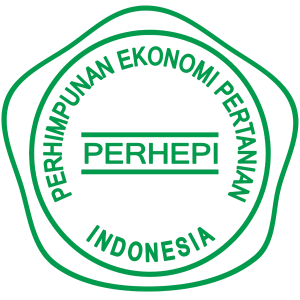Spreadability, Total Dissolved Solids and Likeability of Mango Jam with a Combination of Mango Flesh and Peel Arum Manis (Mangifera Indicates L)
DOI:
https://doi.org/10.55173/agriscience.v7i1.121Keywords:
Jam, mango skin, mango flesh, spreadability, total soluble solids, preference testAbstract
After being harvested, mango fruit will quickly spoil due to the high water content in the fruit, so efforts need to be made to process it to extend its shelf life, one of which is processing it into jam. To get good jam you need the right composition of sugar, acid and pectin. The part of the mango fruit that is widely consumed and processed is the flesh, while the skin and seeds are not widely used even though the skin of the mango fruit contains quite high pectin. This research aims to determine the effect of the combination of mango flesh and mango skin on spreadability, total soluble solids, and panelists' preferences for jam. The method used is Completely Randomized Design (CRD) 1 factor, namely a combination of mango skin and mango flesh with 5 treatment levels: P1 (20%: 80%), P2 (30%: 70%), P3 (40%: 60%), P4(50%: 50%) and P5 (60%: 40%). Parameters observed: spreadability, total dissolved solids, and preference test. Data were analyzed using Variance Analysis and the smallest significant difference (if there is a difference) with a confidence level of 5%. The liking test will be carried out on 30 panelists (untrained) using a 5-level liking scale: very dislike (1), dislike (2), neutral (3), like (4) and very like (5). The results of the study showed that the higher the use of mango peel pulp and the less mango fruit pulp, the lower the spreading power, where the highest spreading power was in treatment P1 and was not different in treatment P2. However, the total dissolved solids value is getting higher. Panelists liked the color, taste and spreadability of treatments P1, P2 and P3 (not significantly different), while the aroma was preferred up to treatment P4.
Downloads
Published
Issue
Section
License
Copyright (c) 2023 Dhiny Olivia Firdaus, Anita Wulandari, Tiurma, W.S Panjaitan

This work is licensed under a Creative Commons Attribution-ShareAlike 4.0 International License.















